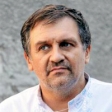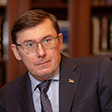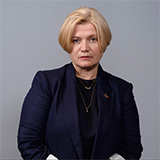"Чому Обама не зможе перезавантажити стосунки з Росією Путіна"
"Росія Путіна має поводити себе як пост-веймарська Німеччина, тому що тільки агресивність зовнішньої політики може легітимізувати владу Путіна і режим, який він створив", – такою є думка відомого американського науковця Олександра Мотиля, оприлюднена Атлантичною Радою США.
Тобто виправити помилки адміністрації Буша не так вже й складно, але базові речі в політиці Кремля лишаються незмінними, у тому числі щодо України. Тому і перезавантаження не відбудеться, якщо тільки Обама не займеться "умиротворенням" Росії – але це мало б катастрофічні наслідки для всіх.
Why Obama Can't Reset Relations with Putin's Russia
By Alexander Motyl
06/11/2009
U.S. President Barack Obama wants to "reset" America's relations with Russia, but the nature of the Russian regime won't permit much change. Obama can easily reject the style and correct the mistakes of his predecessor, George W. Bush, but doing so will not alter the fact that Putin's Russia must engage in imperialist rhetoric and pursue great-power aspirations in order to legitimize itself. As long as Russia insists on imperial dominance over the former Soviet states, U.S.-Russia relations can improve only marginally.
Under Vladimir Putin's guidance, Russia has moved decisively away from democracy. Democratic institutions are at best moribund; the party of power, United Russia, controls politics; civil society and the press are severely circumscribed; the siloviki-members of the military and secret police-dominate all ruling elites; the state controls key industries, especially in energy, defense, mining, and manufacturing; despite the election of Dmitri Medvedev as president in the spring of 2008, Prime Minister Putin remains the undisputed "national leader," and his image exudes vigor, youth, and manliness; a variety of rabidly pro-Putin youth groups-with Nashi as the most celebrated example-act as the vanguard of the leader; a growing mistrust of both internal and external foreigners and a corresponding glorification of Russia's past (including its criminal Stalinist period) and present are the official worldview. Most important, the population overwhelmingly supports Putin and the anti-democratic changes he has introduced.
These are the features of a populist authoritarian state-one that has moved beyond simple repressive authoritarianism and is well on the way to becoming fascist. Unsurprisingly, post-Soviet Russia's developmental path resembles that of post-World War I Germany. Both countries lost empires and experienced profound humiliation. Both countries then experienced extreme economic hardship under the stewardship of weak and corrupt democratic regimes. Both countries blamed democracy and its internal and external supporters for their ills. Both countries turned to hyper-nationalism, state glorification, and strong-man rule. In both countries charismatic leaders seized power-by legitimate means, by the way-and exploited popular willingness to submit to domination to establish their dictatorial rule. Both Russian and German rulers promptly engaged in muscle-flexing in their neighborhoods-to the applause of the majority of their populations-as attempts to reestablish great-power status and to legitimize their strong-man rule. Nazi Germany had to be expansionist because it was run by a charismatic dictator who legitimized his rule by appealing to, and manipulating, national pride and imperial glory. Putin's Russia must behave like post-Weimar Germany, because only foreign policy aggressiveness can legitimate his rule and the regime he has created.
Ukraine holds a particularly important place in Putin Russia's Manichean view of the world. Increasingly negative Russian attitudes toward Ukraine are the result partly of manipulation by state-controlled media, partly of deep-seated disdain for Ukrainian language and culture, and partly of anger at Ukraine for having precipitated the USSR's collapse and, thus, for having deprived Russia of its historical and imperial legacy. In addition, Ukraine's 2004 Orange Revolution challenged Putin's fascistoid refashioning of Russia by suggesting that democracy was possible in post-Soviet conditions. Ukraine's movement in a distinctly pro-Western direction since then has been a slap in the face of Putin's imperial ambitions. Unsurprisingly, Putin openly questioned Ukraine's sovereignty in his 2007 Time magazine interview, while leading Russian politicians, such as Moscow Mayor Yuri Luzhkov, and the Russian lower house, the Duma, have repeatedly insisted that the Crimea be returned to Russia, that Ukraine is persecuting its Russian minority, and that Ukraine may be on the verge of collapse. Most recently, Putin expressed admiration for the anti-Bolshevik General Denikin, for pursuing Russian imperial control over Ukraine in 1919.
The Kremlin's anti-Ukrainian rhetoric is virtually identical to that Russian policy makers have used with respect to Georgia and all the former Soviet republics. All are said to be unstable, and all are said to be violating the rights of Russians or Russian citizens. With such unreliable and repressive neighbors, so the argument goes, Russia has no choice but to intervene to help its abandoned Russian brethren in the non-Russian states. Nazi Germany, not coincidentally, used the exact same language and logic with respect to the German populations in neighboring states ostensibly in need of the Third Reich's protection. Russia's external muscle-flexing is thus intrinsically related to the nature of its internal regime. Neo-imperialist and fascistoid politics always go together.
Were the worsening of U.S.-Russian relations due only to Bush's policies, President Obama could easily fix things. But if U.S. relations with Russia worsened because of Putin's transformation of Russia into an aggressively fascistoid state, then Obama can improve relations only at the margins-unless, of course, he's willing to appease Moscow by sanctifying Russia's neo-imperial hegemony over its non-Russian neighbors. Inasmuch as such a move would destabilize Russia and its neighbors-and, thus, Europe-by encouraging a hyperventilating Russian regime to engage in imperial overreach, no American President would willingly reset relations to the point of mutually assured debilitation. Putin's Russia will have to experience its own Orange Revolution for a fundamental shift in relations to be possible.
Alexander J. Motyl is a professor of political science at Rutgers University-Newark.
Блог автора – матеріал, який відображає винятково точку зору автора. Текст блогу не претендує на об'єктивність та всебічність висвітлення теми, яка у ньому піднімається. Редакція "Української правди" не відповідає за достовірність та тлумачення наведеної інформації і виконує винятково роль носія. Точка зору редакції УП може не збігатися з точкою зору автора блогу.







